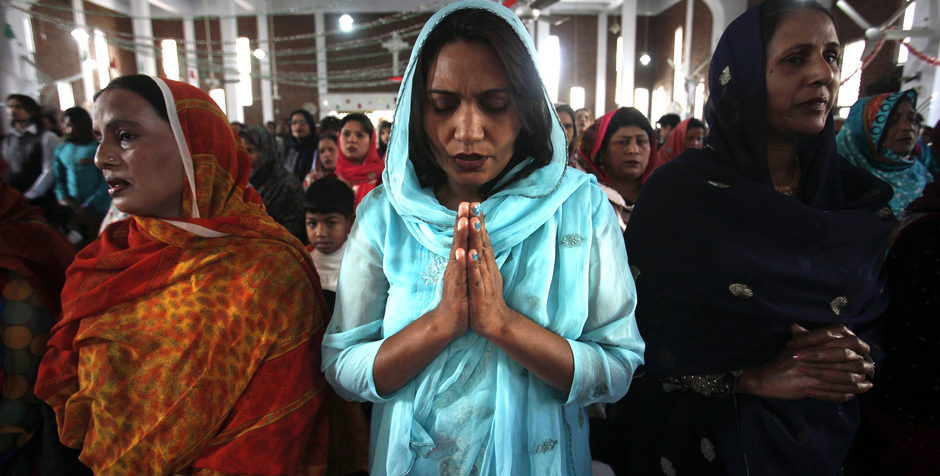State Department’s Concerning Decision to Leave Persecuting Nation Pakistan Off "Countries of Particular Concern" List
Through the European Centre for Law and Justice’s (ECLJ) affiliate in Pakistan, the Organization for Legal Aid (OLA), we have spearheaded the charge to help the persecuted church. Recently, at least 72 people were killed and many more were injured due to a suicide bombing that targeted Christians. The OLA will be partnering with Operation Blessing to aid the most recent victims of the Easter Massacre. This type of persecution in Pakistan is not an isolated incident and yet, State Department Spokesman John Kirby recently announced that Tajikistan, not Pakistan, would be added to a list of religious liberties violators which includes Saudi Arabia, China, and North Korea.
For the 14th consecutive year, Pakistan has managed to avoid the United States' list of "countries of particular concern” based on the criteria established by the International Religious Freedom Act (IRFA) of 1998. According to the United States Commission on International Religious Freedom (USCIRF) 2015 report, “Pakistan represents one of the worst situations in the world for religious freedom for countries not currently designated by the U.S. government as ‘countries of particular concern.’”
USCIRF is an independent, bipartisan U.S. federal government commission, the first of its kind in the world, dedicated to defending the universal right to freedom of religion or belief abroad. USCIRF reviews the facts and circumstances of religious freedom violations and makes policy recommendations to the President, the Secretary of State, and Congress. USCIRF Commissioners are appointed by the President and the Congressional leadership of both political parties.
In November 2014, a Christian couple was burned alive because they allegedly burned pages of the Quran. Recently, the lead suspect was released from police custody even though the Prime Minister Nawaz Sharif had ensured that, “for the first time in Pakistan’s history, the state will be the plaintiff in a case involving murder due to alleged blasphemy.” The Prime Minister’s goal was to set precedence so that this type of travesty never happened again. Yet, two years after the murders, Pakistan has shown either an inability or unwillingness to change its posture toward systemic and systematic religious persecution.
Unlike the aforementioned case, most OLA cases never become international headlines. Just this past year, the OLA has managed to win several victories at the local court level. One recent victory involved an eight-year-old girl who was stripped naked by a Muslim family. The cause? The girl’s Christian uncle was dating their Muslim daughter. After seeing their daughter dishonored in public, her family had a heated discussion with the Muslim family that resulted in both parties filing police reports against the other. As typically happens in Pakistan, the Muslim family’s complaint was accepted and the Christian’s ignored. Once the family contacted the OLA, we filed a petition in the local court. The court ordered the police to register the Christian family’s complaint as well. The court order placed the Christians on a level playing field and ultimately led to both parties negotiating a settlement.
The OLA has an ongoing case involved the murder of a Christian father who was stripped naked and tortured by the police in front of his son before he died from his injuries. This type of behavior is common in Pakistan and the police typically get away with it since the police can physically harass anybody who dares to raise a finger against them. Recently, after we challenged the autopsy report which failed to mention marks of violence, the Lahore High Court ordered the Superintendent of Police to submit his investigation report. Unfortunately, the Superintendent’s report concluded that no tortured occurred. The Court then ordered that the ongoing judicial inquiry be completed soon. We are waiting for the judicial inquiry’s report. But due to the level of corruption within the legal system, it is impossible to predict the results of the inquiry.
Pakistan is a nation that treats religious minorities like second-class citizens. The purpose of the IRFA is to help establish religious equality around the globe. By leaving Pakistan off the IRFA’s list of countries of particular concern, the current administration has sent a clear message to the religious minorities in Pakistan that the violation of their freedoms is not something we care about.
